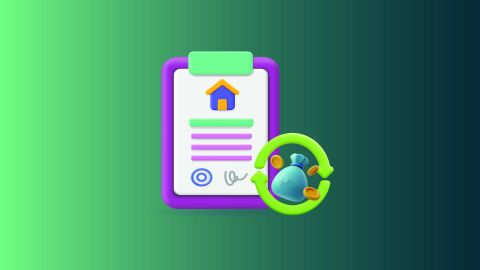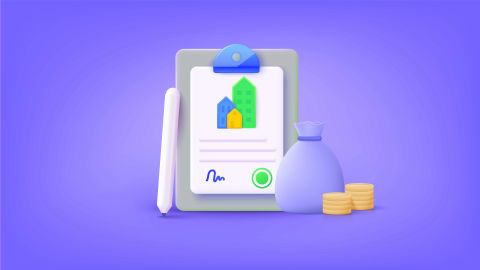A loan against property is now a popular credit instrument because it is easy to use and can serve as a useful source of financing. But in order to plan and manage your finances efficiently, you must understand the charges applicable on your loan against property. This will give you a clear picture of the total cost of taking the loan and help you budget for repayment.
Take a look at the various applicable charges on your mortgage loan.
Managing charges like interest rates, processing fees, and penalties is easier when you choose the right lender for a loan against property. With Bajaj Finance, you can enjoy competitive rates, and easy online loan management. This loan not only provides you with substantial funds but also offers flexibility to plan repayments without stress. Make your property work for you by leveraging its value while ensuring that hidden charges don't weigh you down. Take the first step towards smarter financial planning with Bajaj Finance transparent and flexible offerings! Get loan of up to Rs. 10.50 crore against your property within 72 hours* of the approval.
Loan against property interest rate
The interest rate is the cost at which the lender extends credit to you. It is calculated on the total amount you borrow for the tenor for which you are taking the loan. Interest rates are calculated annually and then added proportionately to each EMI.
A loan against property offers more than just funds—it gives you financial freedom with tailored repayment options. Bajaj Finserv Loan Against Property stands out with its competitive interest rates. Additionally, our secure online portal helps you track and manage your loan effortlessly. Whether you are planning part-prepayments or foreclosures, Bajaj Finserv ensures the process is hassle-free. Unlock your property’s potential with this cost-effective credit solution and take charge of your financial goals without worrying about hidden costs. With Bajaj Finserv Loan Against Property, enjoy lower EMIs starting from Rs. 750/lakh* and longer repayment tenures.
Processing fees
Processing fees, also known as application fees, cover administration costs, carrying out credit checks and property appraisals, etc. This amount is deducted from the total loan amount before it is disbursed to you.
Additional Read: Bajaj Finserv Loan Against Property process
Statement charges
Most lenders charge you for interest and principal statements, as well as loan statements that help you monitor the progress of your loan. These are sent to you in the form of a hard copy, and statement charges cover the cost of printing and sending them across to you.
Most lenders charge you for interest and principal statements, as well as loan statements that help you monitor the progress of your loan. These are sent to you in the form of a hard copy. However, the lender will levy a charge for printing and sending the statement to you.
You can avoid this charge by switching to online loan management, which most loan providers offer. One such lender is Bajaj Finserv, which offers online loan management to you for its Loan Against Property. Moreover, you can sign into a secure Bajaj My Account customer portal using a customer ID and password and access all related loan statements at your convenience.
EMI bounce charges
EMI bounce charges
Rs. 1,500/- per bounce.
"Bounce charges” shall mean charges for (i) dishonour of any payment instrument; or (ii) non-payment of instalment (s) on their respective due dates due to dishonour of payment mandate or non-registration of the payment mandate or any other reason.
Penal interest
If you fail to make EMI payments or default on loan, you will have to pay penal interest. This is charged over and above the rate of interest and is calculated monthly. So, it is best that you plan for repayment in advance to avoid paying such charges.
Additional Read: What is the difference between home loan and loan against property
Part prepayment charges
Part prepayment charges
Full Pre-payment
• Term Loan: Up to 4.72% (Inclusive of applicable taxes) on the outstanding loan amount as on the date of full pre-payment
• Flexi Term Loan (Flexi Dropline): Up to 4.72% (Inclusive of applicable taxes) of the Dropline Limit as per the repayment schedule as on the date of full prepayment.
• Flexi Hybrid Term Loan: Up to 4.72% (Inclusive of applicable taxes) of the Dropline Limit as per the repayment schedule as on the date of full prepayment.
Part Pre-payment
• Term Loan: Up to 4.72% (Inclusive of applicable taxes) of principal loan amount prepaid on the date of such part pre-payment
• Not Applicable for Flexi Term Loan (Flexi Dropline) and Flexi Hybrid Term Loan
Note: - If all borrowers and co-borrowers are Individual, loan availed on floating interest rates, and loan taken for purpose other than business use, then there will be no foreclosure / part payment charges
Foreclosure charges
No foreclosure charges*
If all borrowers and co-borrowers are individuals, loan availed on floating interest rates, and loan taken for purposes other than business use, then there will be no foreclosure/ part-prepayment charges.
Secure fee
Lenders charge a security fee to reinforce security for your account, transactions, and sensitive information in whatever manner they deem necessary. This involves protecting your online account and keeping all your data safe.
So, when picking a loan against property, don’t pick one just by looking at a low-interest rate. Instead, use the Loan against property EMI calculator to identify the installment you are likely to pay and review the charges before you take a decision.
Certificates Required For Property
S.No |
Certificate Type |
1 |
|
2 |
|
3 |
|
4 |
Why let your property’s potential go untapped? With Bajaj Finserv Loan Against Property, you can secure funds at competitive rates and minimal documentation. The transparent terms and online loan management tools empower you to stay on top of your finances. This loan is perfect for funding major expenses or consolidating debts. Maximise your property’s value and make it work for you with this efficient credit option. By using your property as collateral, you can unlock access to large funds of up to Rs. 10.50 crore—it is a smart way to manage your finances with ease! Get funds within 72 hours* of approval.
DISCLAIMER:
While care is taken to update the information, products, and services included in or available on our website and related platforms/websites, there may be inadvertent inaccuracies or typographical errors or delays in updating the information. The material contained in this site, and on associated web pages, is for reference and general information purpose and the details mentioned in the respective product/service document shall prevail in case of any inconsistency. Subscribers and users should seek professional advice before acting on the basis of the information contained herein. Please take an informed decision with respect to any product or service after going through the relevant product/service document and applicable terms and conditions. In case any inconsistencies observed, please click on reach us.
*Terms and conditions apply








